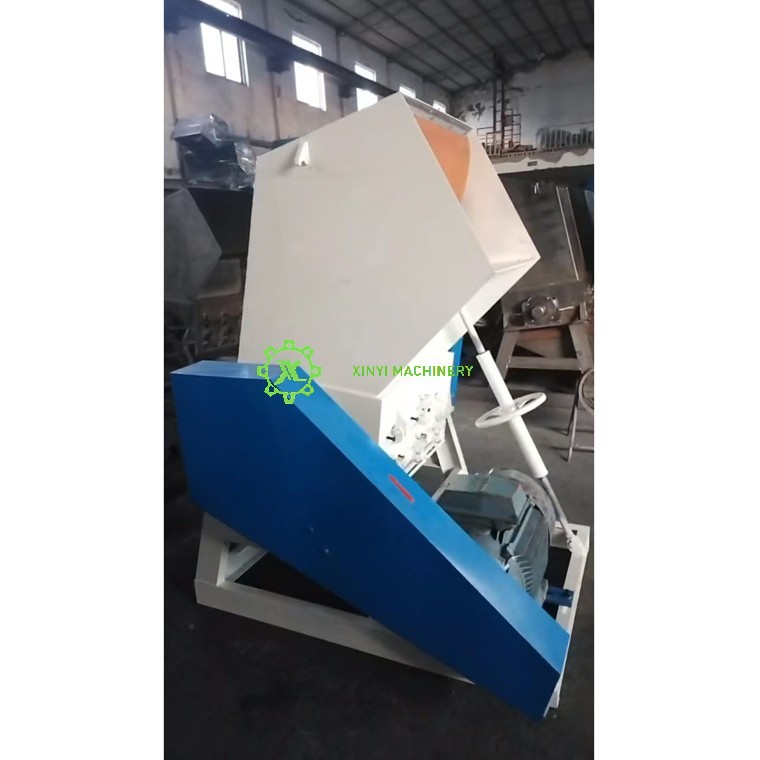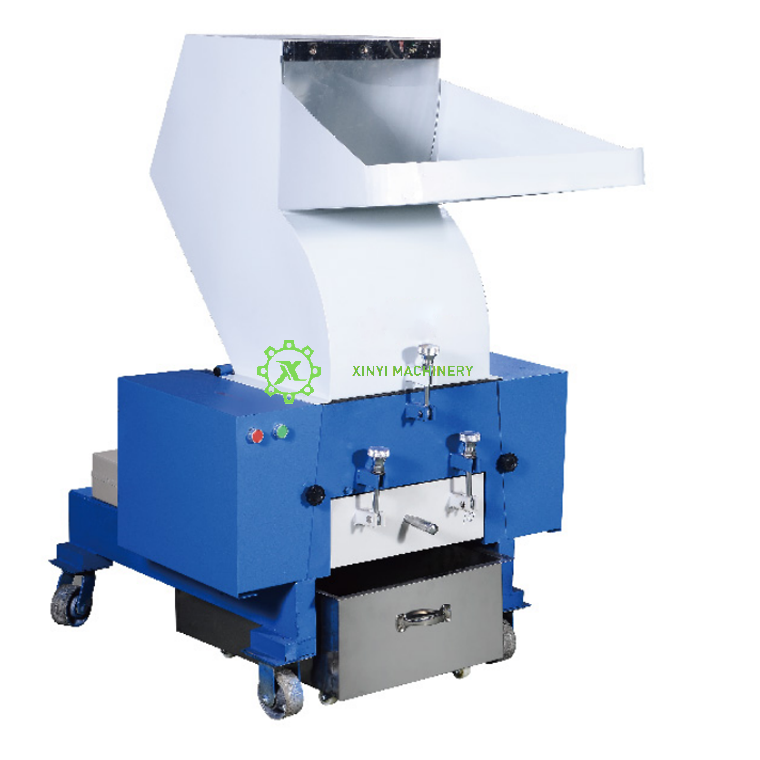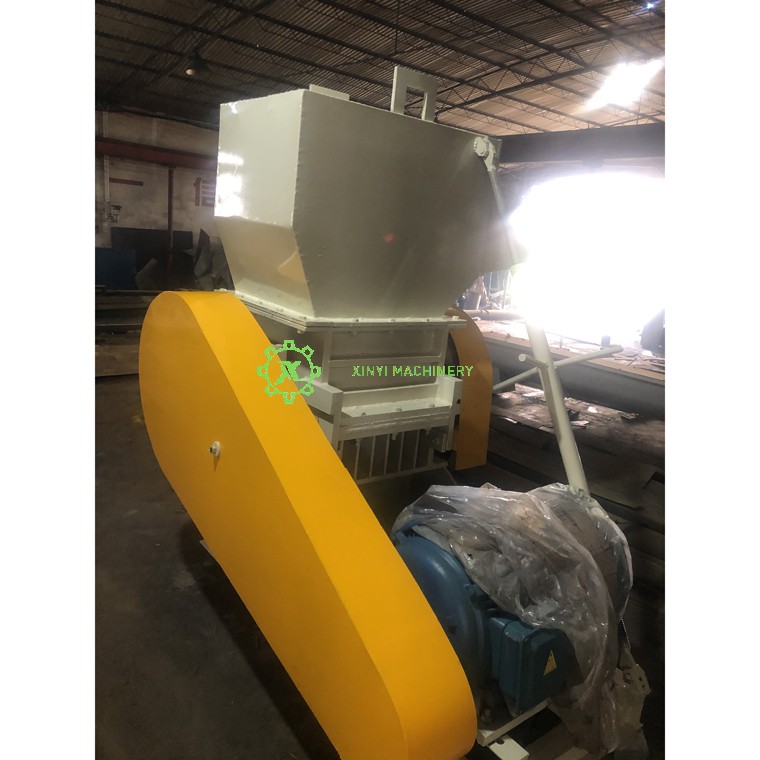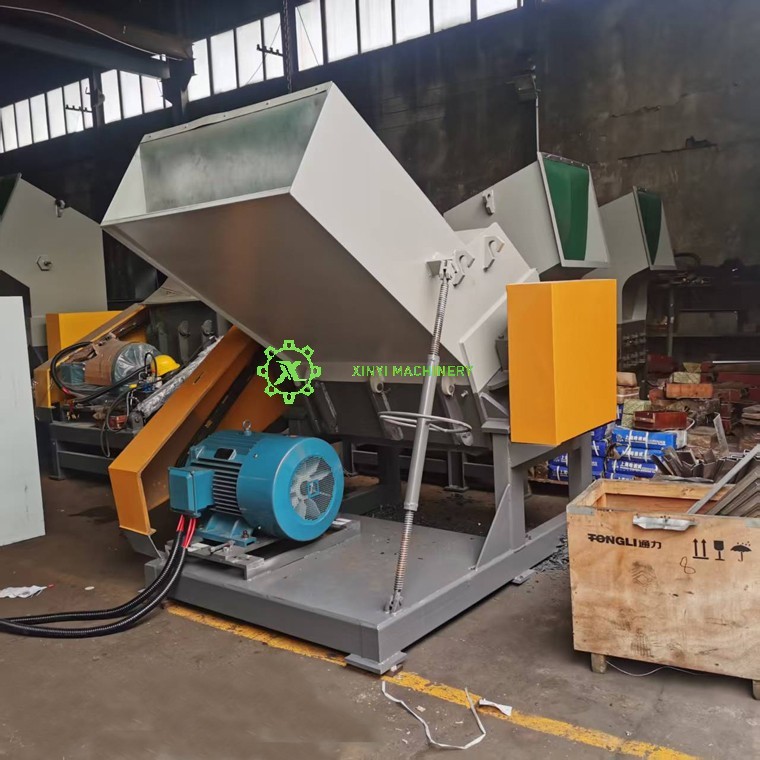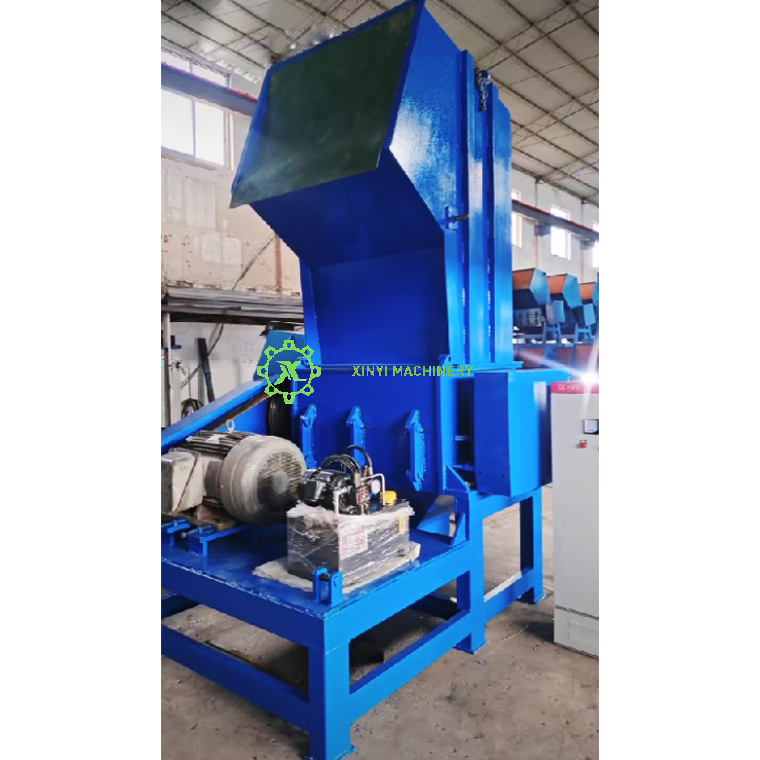Can a plastic crusher/ plastic crusher machine be used for crushing plastic containers?
Of course. Yes, a plastic crusher (or plastic grinder, plastic pulverizer, plastic crushing machine) is specifically designed to crush plastic containers and is a fundamental piece of equipment in the plastic recycling and manufacturing industry.
Here’s a detailed breakdown of how it works, the considerations, and the types of containers it can handle.
How a Plastic Crusher Works on Containers
The basic principle is straightforward:
1. Feeding: Plastic containers are fed into the machine's hopper, either manually or via a conveyor belt.
2. Crushing: Inside the machine, a rotating shaft with hardened steel blades (rotors) cuts and shears the plastic against stationary blades (bed knives).
3. Screening: The crushed plastic pieces fall through a screen or grid located at the bottom of the crushing chamber. The size of the screen's holes determines the final size of the plastic flakes (or "regrind").
4. Collection: The uniform-sized flakes are then collected in a bin or bag beneath the machine for further processing, such as washing, extrusion, or pelletizing.
Key Considerations for Crushing Plastic Containers
While plastic crushers are built for this job, not all machines or all containers are the same. Here’s what you need to consider:
1. Type of Plastic (Resin Identification Code)
This is the most important factor. Crushers can handle all common container plastics, but you must often sort them by type for recycling. The most common ones are:
· PET (Polyethylene Terephthalate #1): Water bottles, soda bottles, cooking oil containers. Crushes very well.
· HDPE (High-Density Polyethylene #2): Milk jugs, detergent bottles, shampoo bottles. A very common and easily crushed material.
· PP (Polypropylene #5): Yogurt containers, syrup bottles, margarine tubs, medicine bottles. Also crushes well.
· LDPE (Low-Density Polyethylene #4): Squeeze bottles (e.g., honey, mustard). Softer and can be more challenging if the blades aren't sharp.
Important: You should not mix different plastic types if the end goal is high-quality recycling, as they have different melting points and properties.
2. Size and Shape of the Container
· Large Containers: Large bottles or jugs (e.g., 5-gallon water cooler bottles) may need to be pre-cut or compressed to fit into the crusher's feed opening.
· Odd Shapes: Containers with handles or wide mouths might need a crusher with special feeding ram or a larger hopper.
3. Machine Specifications
· Blade Type (Rotor Design): The "scissor" or "V" cut of the blades is crucial for cleanly shearing the plastic instead of tearing it.
· Power: Thicker-walled containers (like HDPE detergent bottles) require more power to crush than thin-walled water bottles.
· Screen Size: The screen at the bottom dictates the final flake size. A smaller hole size (e.g., 8-10mm) produces finer flakes suitable for most recycling processes.
· Hopper Design: A wide, open hopper is better for handling bulky containers.
4. Preparation
For efficient crushing and to protect the machine:
· Remove Non-Plastic Components: Always take off caps, lids, rings, and labels. These are often made from a different type of plastic (like PP or PE) or metal, which can contaminate the batch and damage the crusher blades.
· Rinse Containers: Residual food or liquid can jam the machine, cause corrosion, and create a biohazard. Clean containers are essential.
· Dry Containers: While not always mandatory, dry plastic is easier to crush and store without risk of mold.
Common Applications
· Volume Reduction: Crushing containers drastically reduces their volume (by up to 90%), saving on storage and transportation costs for recycling.
· Recycling Facilities: The primary use is to prepare plastic flakes for the next steps in the recycling chain (washing, extruding, pelletizing).
· In-House Recycling: Manufacturing plants that produce plastic waste (like rejected containers) often use crushers to regrind the material and feed it back into the production line, saving raw material costs.
· Waste Management: Businesses and institutions use smaller crushers to manage their plastic waste footprint.
Conclusion
Absolutely, yes. A plastic crusher is the perfect machine for crushing plastic containers. The key to doing it successfully and efficiently lies in:
1. Sorting the containers by plastic type.
2. Preparing them by removing caps, rinsing, and drying.
3. Choosing a crusher with the appropriate power, blade design, and hopper size for your specific container stream.
Always consult the manufacturer's guidelines for your specific crusher model to understand its capabilities and limitations.
XINYI MACHINERY is a China Leading manufacturer of all kinds of crushers, including plastic bottle crushers, pallet crushers, pipe crushers, PET bottle crushers, plastic lump crushers, paper crushers, water bottle crushers, milk bottle crushers, plastic drum crushers, bucket crushers,etc. Welcome to contact us!
